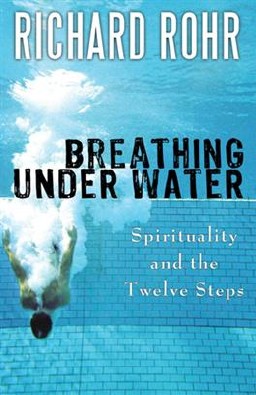Words of Wellness

September 25, 2015 | The Rev. Dr. Scott Stoner
The Wisdom of the Twelve Steps
Most likely, everyone who reads this weekly column knows someone, whether they know it or not, who is in recovery from an alcohol or drug addiction. Some of you are in recovery yourselves and therefore know first hand the wisdom of the Twelve Steps, the core of many recovery programs. People who are not in recovery however, are often unaware of just how helpful the wisdom found in the Twelve Steps can be and how they can help anyone. In honor of September being National Recovery Month I will reflect on a few of the Twelve Steps and examine how each of them can help provide guidance for each of us as we strive to live lives of health and wellness.
The first of the Twelve Steps is "We admit that we are powerless over alcohol-that our lives have become unmanageable." People with addictions are not the only people, however, who are capable of denying the obvious and who have parts of their lives that are unmanagable, even when it is obvious that something is having a negative effect on their lives. Organizations that continue "business as usual" when clearly the way they are doing things is no longer working are in denial that changes are necessary. Two people in a relationship who are suffering because of escalating conflict and yet are unwilling to face the conflict and make changes in their behavior are also in denial. The same is true when a person ignores warning signs that they have a health problem. All of these are examples of "an elephant in the room," something that everyone knows, but no one wants to talk about. Healing, recovery, and growth cannot begin until denial is broken through, and there is a willingness to acknowledge that life has "become unmanageable."
"We have come to believe that a Power greater than ourselves could restore us to sanity," is step two of the Twelve Steps. Albert Einstein is known to have said, "We cannot solve our problems with the same thinking we used when we created them." A Higher Power is needed to expand our perspective and move us forward when we are stuck. A person in recovery may define that Higher Power as nature, love for another person, their "higher" self, or as God. If stuck in any type of ongoing negative pattern any of us has a better chance of changing when we tap into a higher level of consciousness as it gives us meaning, hope, and a broader perspective.
Steps Five and Six of the Twelve Steps offer the wise advice that healing requires making a searching and fearless inventory of ourselves and then admitting our wrongdoings to ourselves, to others and to God. Taking an honest self-assessment can be both scary and yet, at the same time, very freeing. A wonderful thing happens when we acknowledge the hurts we have caused others and seek their forgiveness. It is freeing to acknowledge the ways we have hurt ourselves as well. When we admit our wrong doings to others, to ourselves, and to God the energy that has been tied up in regrets is then instead freed up to create a new and better future.
There are countless books written about the wisdom of the Twelve Steps. If this has peaked your interest, I suggest you find such a book (One of my favorites is Breathing Under Water by Richard Rohr) and do some further study of these potentially life changing steps.
My space is limited here so I've settled for sharing only four of the twelve steps with you. Although I have shared only these four steps any one in recovery can tell you that really living into these or any of the steps can take months or years to address fully. The same will be true of the rest of us as well, as this model of self-reflection is ongoing for all of us.
I will conclude by sharing all of the Twelve Steps with you, and by giving thanks for the wisdom that people in recovery model for us each and every day, one day at a time.
The Twelve Steps of Alcoholics Anonymous
1. We admitted we were powerless over alcohol-that our lives had become unmanageable.
2. Came to believe that a Power greater than ourselves could restore us to sanity.
3. Made a decision to turn our will and our lives over to the care of God as we understood God.
4. Made a searching and fearless moral inventory of ourselves.
5. Admitted to God, to ourselves, and to another human being the exact nature of our wrongs.
6. Were entirely ready to have God remove all these defects of character.
7. Humbly asked God (as we understand God) to remove our shortcomings.
8. Made a list of all persons we had harmed, and became willing to make amends to them all.
9. Made direct amends to such people wherever possible, except when to do so would injure them or others.
10. Continue to take a personal inventory and when we were wrong promptly admitted it.
11. Sought through prayer and meditation to improve our conscious contact with God, as we understood God, praying only for knowledge of God's will for us and the power to carry that out.
12. Having had a spiritual awakening as the result of these Steps, we tried to carry this message to alcoholics, and to practice these principles in all our affairs.
Subscribe Now to Weekly Words of Wellness
Donít wait another day! Enter your e-mail address below to signup for the e-mail version of Weekly Words of Wellness. Rev. Dr. Scott Stoner covers a new topic each week providing insight and wisdom for our everyday lives.
You can unsubscribe at any time.

